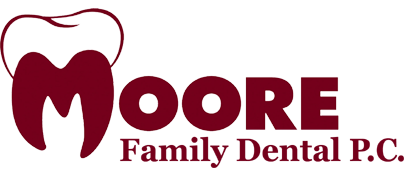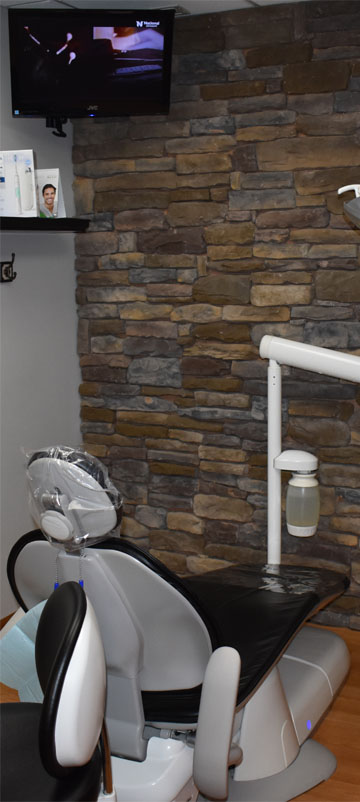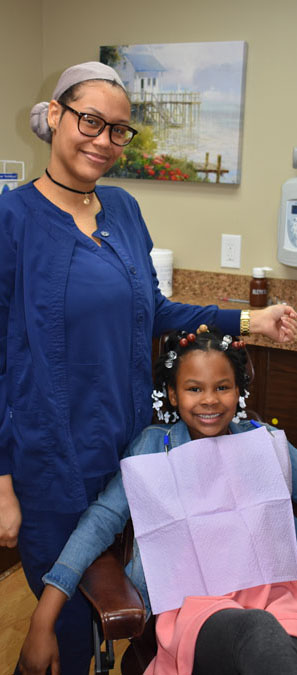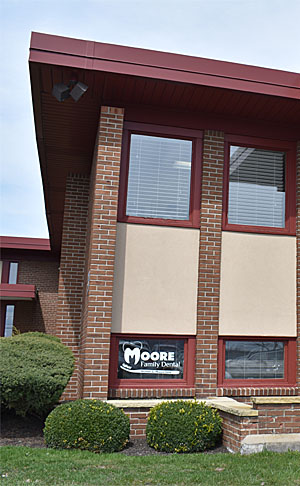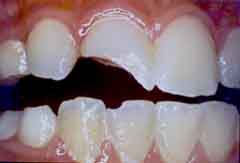 Your teeth can get chipped or cracked during the course of daily life. The culprit may be a wayward popcorn kernel, pretzel, coffee cup or just gradual “wear and tear”. If possible, try to avoid swallowing any tooth fragments as they may have sharp edges.
Your teeth can get chipped or cracked during the course of daily life. The culprit may be a wayward popcorn kernel, pretzel, coffee cup or just gradual “wear and tear”. If possible, try to avoid swallowing any tooth fragments as they may have sharp edges.
If emergency medical attention is not necessary, you should call a dentist to schedule an appointment. It is important to do this even if you have an appointment scheduled for the near future. Let Dr. Moore and his staff determine if the situation is serious enough to require a more immediate appointment. When you call, make sure you inform the office of the reason for your call and be honest and objective about the severity of the chip or crack.
As everyone knows, do-it-yourself projects are very popular. Do not be tempted to add this situation to that category. Superglue or a similar adhesive will not be effective or safe in reattaching pieces of your tooth. In the same way, you cannot smooth a chip or fill a crack using items found in your home. The dentist will be able to provide you with the safest and best care to minimize the damage and restore full function to your teeth.
Options for further treatment
If the dentist determines that your tooth will require additional treatment, there are several possibilities. Bonding, as the name implies, allows for something to be attached, or bonded, to the tooth. This technique is especially useful when a tooth is cracked because the bonding process helps fill in the crack and strengthen the tooth. As part of the bonding process, a new surface is placed on the tooth to improve its appearance and allow it to function normally.
Veneers are also a popular option for chipped or cracked teeth. This involves attaching a very thin ceramic face to the tooth; the process is similar to bonding. As a preliminary step, the tooth might be smoothed so that no portion of the tooth will remain chipped. When the veneer is placed on the tooth, the result will be a fully-functioning and very comfortable tooth.
Important factors to remember
A chip or crack might seem very small and insignificant; however, it is best to let the dentist determine the extent of the damage. A tiny chip might not appear to need attention, but if it is ignored, it could turn into a larger chip or lead to a crack in the tooth. If nothing else, a chipped tooth can be very sharp and lead to cuts on the lip, cheek, or tongue so it is best to have it checked out as soon as possible. Finally, be sure to make the dentist aware of your pain level. That can be very valuable information to help the dental staff determine if the chip or crack resulted in damage to a nerve.
Chips or cracks to your teeth can occur in a variety of ways. However, with immediate treatment, you can minimize the damage and get your mouth back to normal as soon as possible.
